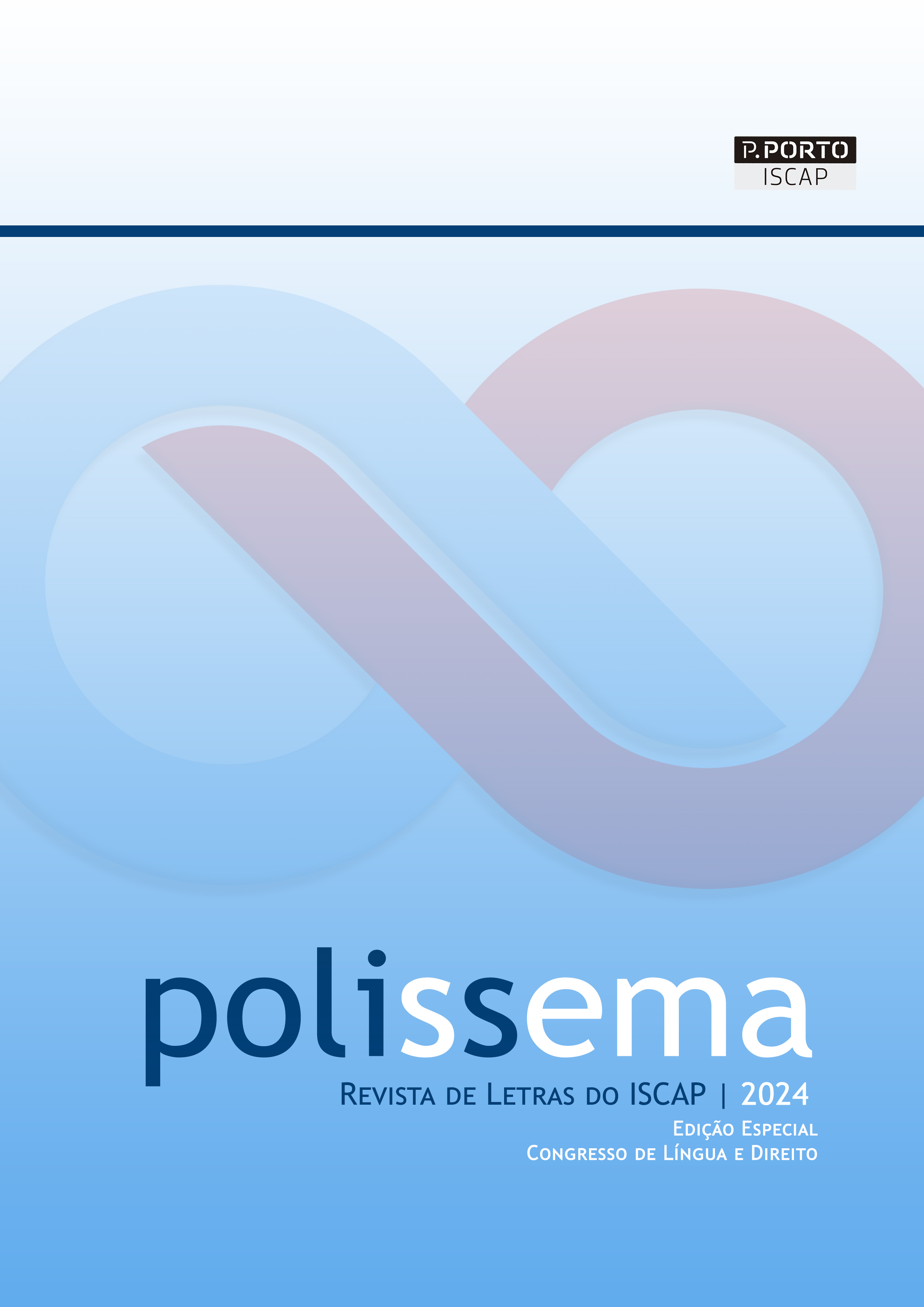DIRECTIVE 2010/64/EU: GUARANTEEING A FAIRE TRIAL?
DOI:
https://doi.org/10.34630/polissema.vi.5641Keywords:
LA DIRECTIVE 2010/64/UE : GARANTIE D’UN PROCÈS ÉQUITABLE ?Abstract
Legal translation presents a major challenge for justice and fundamental rights in the European area. It not only has intrinsic characteristics but also practical consequences, especially in overcoming the language barrier for citizens to defend themselves and exercise their rights within a Member State of the European Union. The quality of translation and interpretation is essential for the proper exercise of each individual's rights in the European area. The European Parliament and the Council of 20/10/2010 issued Directive 2010/64/EU to standardize a framework for translation and interpreting in criminal proceedings. However, the directive has been transposed differently among the various countries that make up the European Union. Some countries have defined a legal regime for legal translators as agents of public faith, competent to act at the level of national police and judicial institutions, while others have not transposed the minimum regime provided for in this directive.This article aims to analyse how the quality of legal translation is guaranteed in the European area, focusing on the legislative response of the EU Member States when transposing Directive 2010/64/EU. We will also check whether there is any standardization of the rules at the European level, so that the rights of individuals within the European Union can be effectively exercised in the context of criminal proceedings. To achieve this, we will study the Portuguese and Belgian contexts.
References
Code judiciaire (1967). Droit Belge. http://www.droitbelge.be/codes.asp#jud.
Constitution de la République Portugaise (1976). https://bit.ly/4avJyPP.
Portugal, Tribunal da Relação de Évora, Affaire 53/19.8GACUB-B.E1, 2 août 2022. Bases Jurídico-Documentais. https://vu.fr/YNfql
Parlement Européen (2010). Directive 2010/64/UE du Parlement européen et du Conseil du 20 octobre 2010 relative au droit à l’interprétation et à la traduction dans le cadre des procédures pénales. Journal officiel de l’Union européenne. https://bit.ly/4a5egzb
Service Public Fédéral Justice (2017). Manuel qualité traducteurs/interprètes. https://vu.fr/sAJdo
Van Gend & Loos v. Administration fiscale néerlandaise (1963). Affaire 26-62. (Arrêt de la Cour de justice du 5 février 1963). Eur-Lex, Document 61962CJ0026. https://shorturl.at/kwzLU.
Varela, M.C. (2019). Traduction et interprétation dans le cadre des procédures pénales au Portugal : support, fondements et applications. Traducción y sostenibilidad cultural, 415-421. Ediciones Universidad de Salamanca.
Downloads
Published
How to Cite
Issue
Section
License
Copyright (c) 2024 POLISSEMA – ISCAP Journal of Letters

This work is licensed under a Creative Commons Attribution-NonCommercial-NoDerivatives 4.0 International License.


